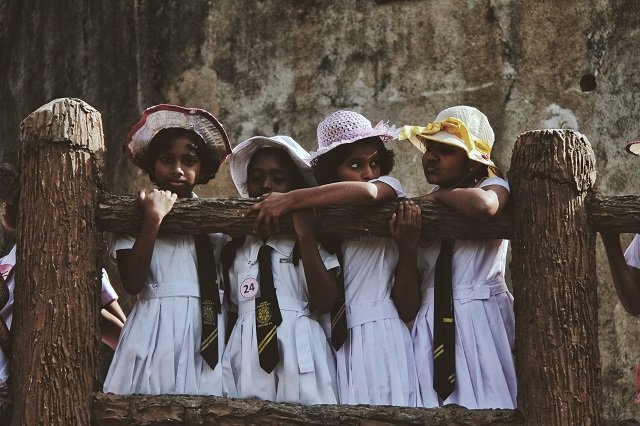Most of the political victims of what happened in July 2022 are looking for compensation from the state. The public will clearly oppose any such payment.
by Manik De Silva
We Lankans are famous (or should we say notorious?) for frequently talking like the proverbial fisherman boasting about “the one that got away.” In our case we are fond of recalling where Singapore was in terms of development and where we were when the sun finally set over the British empire. The older among us still remember Singapore’s ‘Miracle Man’ Lee Kwan Yew going on the public record during a visit to our newly independent island after Singapore herself had cease to be a British colony that he would like to emulate us in his island state.
No doubt we were then a country worth emulating. Our population was manageable and we were relatively resource rich with a largely British-owned plantation sector dominating our exports. Colombo was a garden city, as it was frequently described once-upon-a-time. English was our language of administration and the white collar segment of our population, both in the public and private sectors, was fluent in that language. We were strategically located on the southern tip of India with this island blessed by two monsoons and with an enviable climate. We were without doubt a very nice place to live in and could have attracted more foreign investment than we did post-Independence if we did not have a strong left movement which was possibly a deterrent to such investment. But it certainly enabled welfare benefits though not only for the poorer sections of community.
 |
| Corrupt Practices Investigation Bureau, Singapore |
There is no need to labour where Singapore is today and where we are now, a declared bankrupt state though our leaders keep dangling a rosy picture of light at the end of the tunnel. Recent events in Singapore, where its Transport Minister S. Isvaran was sent on leave by Prime Ministe Lee Hsien Loong after the city state’s anti-graft agency began a probe against him, the first in almost 40 years when such an investigation had begun against a cabinet minister. He was since arrested and bailed and Lee, saying that there was no precedent to go on, has ordered the slashing of his salary to a fraction of what it was. This was on the basis of how a senior civil servant would be dealt with in the event of such an investigation.
Contrast that to what prevails here. We have a cabinet minister in the government convicted by a the Colombo High Court and sentenced to a term of two years rigorous imprisonment, suspended for five years. He has also been imposed a fine of Rs. 25 million and ordered to pay a businessman who he is alleged to have threatened a sum of one million rupees compensation. This case related to a matter of clearing a land in the Meetotamulla area of Kolonnawa of unauthorized occupants. The Minister concerned, Mr. Prasanna Ranatunga, continues to occupy a frontbench seat in parliament and also serves as chief government whip while the conviction is under appeal. But in India Congress leader Rahul Gandhi lost his seat in the Lok Sabha following a defamation conviction. That matter too is under appeal and Gandhi remains outside parliament.
That is not all. There is another cabinet minister who was accused to soliciting bribe from a Japanese company during the Gotabaya Rajapaksa presidency. The allegation widely circulated on social media and mentioned in parliament saw Rajapaksa requesting the minister concerned to temporarily resign. This he did and he was thereafter cleared by an investigation by an official committee. This, of course, was not done in public and the people remain blissfully unaware of the proceedings. The minister has since returned to office. It’s now back to business as usual and despite the various promises made both to the country and also to the International Monetary Fund about tackling corruption no favourable movement in this direction is visible.
The system change demanded by the aragalaya has still not happened although President Gotabaya Rajapaksa and Prime Minister Mahinda Rajapaksa are now out of office living in taxpayer supported luxury. Many elected representatives of the people who took a heavy blow when their homes and property were attacked at the height of the disturbances and disappeared from sight have now crawled out of the woodwork and are very much seen and heard. There is little doubt that these attacks, soon after Prime Minister Ranil Wickremesinghe’s private home was torched, were carefully planned and executed but there has been no clear breakthrough on who was responsible. The IGP has made out that police lethargy was due to MPs themselves interfering in OIC appointments implying that unsuitable policemen were in charge. This is an obvious attempt to wash his hands off an abject law enforcement failure.
Most of the political victims of what happened in July 2022 are looking for compensation from the state. The public will clearly oppose any such payment. In their book politicians have made enough. There is little discussion on the subject but various deals are possible as an election year approaches. The president is looking for a term where he’s elected by the people rather than parliament while the SLPP is divided on whether they will go along with the man they elected last year or paddle their canoe with their own candidate. All kinds of deals are possible in the coming months but what is assured is there will be no Singapore-style pursuit of wrongdoers. What Lee Kuan Yew thought of this country he has visited many times under different leaders is clearly set out in his book ‘From the Third World to the First’. It makes good reading.
Manik De Silva is the Editor of Sunday Island, a Colombo based weekly published by Upali Newspapers Ltd.















Post a Comment